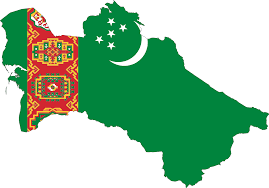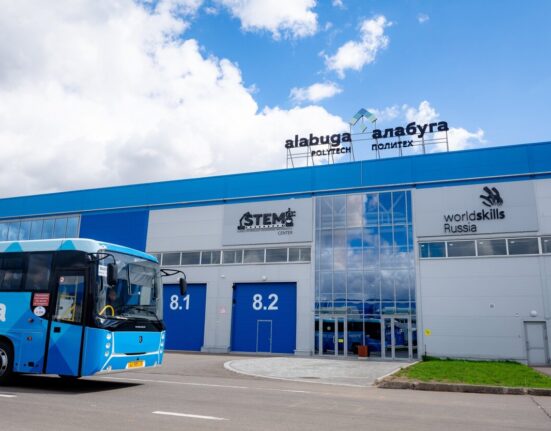Turkmenistan remains the only state in Central Asia with no free economic zones operating in the country.
Although the Law on Free Economic Zones (FEZs) was enacted in Turkmenistan in October 2017, no free economic zones are known to be in operation, according to the U.S. Department of State’s 2024 Investment Climate Statements: Turkmenistan.
The Law guarantees the rights of businesses, both foreign and domestic, to operate in free economic zones without profit ceilings. It also forbids the nationalization of enterprises operating in the FEZs and discrimination against foreign investors.
The Law defines the legal, organizational, and economic foundations for the creation of FEZs in the country.
According to the Law, free economic zones can be created on the territory of Turkmenistan, including free trade zones, industrial production zones, technology parks, zones specializing in the provision of financial, banking, tourism, and recreational services, as well as transport and logistics zones.
The above-mentioned U.S. Department of State’s report says that Turkmenistan is currently considered high risk for U.S. foreign direct investment (FDI) due to near total government control of the economy, strict foreign currency controls, endemic corruption, opaque and onerous bureaucratic processes, and a weak commercial law and regulatory regime. “The government has not taken serious measures to attract or incentivize foreign direct investment (FDI) and there is no significant U.S. or other FDI in the country aside from several petroleum related production sharing agreements (PSAs).”
The report adds that the most serious impediment to any investment in Turkmenistan is the government’s strict foreign currency controls which have resulted in a widely used secondary exchange rate for U.S. dollars that averaged over five times the official rate in 2023. This unofficial secondary rate, which appears to be controlled by the government, is not accessible through any financial institutions. This results in foreign investors being unable to repatriate profits or to convert local currency to USD to import supplies or equipment.
Turkmenistan regularly announces its desire to attract more foreign investment, but in practice there have been no new projects involving foreign investors for at least 10 years, the report continues. Foreign companies with approved government contracts generally receive government support and do not face problems or significant delays when registering their operations in Turkmenistan. Foreign companies without approved government contracts that seek to establish a legal entity in Turkmenistan must go through a lengthy and cumbersome registration process involving approval by a commission that includes the Ministry of Foreign Affairs, the Agency for Protection from Economic Risks, law enforcement agencies, and industry-specific ministries.
In spite of that, Turkmenistan has moved to step up efforts to create much-needed free economic zones. This task was set by President Serdar Berdimuhamedov at a meeting of the Cabinet of Ministers on December 23, 2022, after reviewing the draft State Program for the Creation and Development of Free Economic Zones.
Turkmen media reported that Berdimuhamedov stressed the importance of continuing work in this area and noted that free economic zones are currently an integral part of global economic relations and are among the key factors of rapid economic growth. The president said that to achieve these goals, it is necessary to intensify interaction with foreign partners to exchange information and technology, deepen integration economic processes, and increase international trade turnover.
However, as the U.S. Department of State’s report says, there are no known active incentives for foreign investors in Turkmenistan. According to the country’s Law on Foreign Investments, foreign investors, especially those operating in the free economic zones, may enjoy some incentives and privileges, including license and tax exemptions, reduced registration and certification fees, land leasing rights, and extended visa validity. “However, currently no free economic zones are known to be in operation,” the report concludes.
In the meantime, Turkmenistan has moved to establish free trade zones with neighboring countries.
In November 2023, Turkmenistan put forward an initiative to create trade and economic zones on the border with Iran, and in August 2024, the governor of Iran’s Golestan province, Ali Mohammad Zanganeh, announced plans to establish a joint free trade zone (FTZ) with Turkmenistan.
Iranian media reported that the proposed free trade zone in Iran’s Incheh-Borun, a critical gateway to Central Asia, is projected to create 47,000 jobs and boost the exchange of goods via railways to 13.7 million tons and by road to 6.3 million tons.
In October 2022, the presidents of Turkmenistan and Uzbekistan reached an agreement on the establishment of a cross-border trade zone. By his decree dated February 28, 2024, the president of Uzbekistan approved the establishment of a free trade zone called “Uzbekistan-Turkmenistan” in the Shavat district of Uzbekistan’s Khorezm region, near the border with Turkmenistan.
Turkmen media reported that the free trade zone will be created for a period of 30 years with the possibility of extension. It will sell products produced only in Uzbekistan and Turkmenistan. Citizens of Turkmenistan will be allowed to stay in the zone visa-free for up to 15 days. The project is planned to be completed within the next two years.
A similar joint project at the border of Turkmenistan’s Lebap province and Uzbekistan’s Bukhara region is currently under development.




